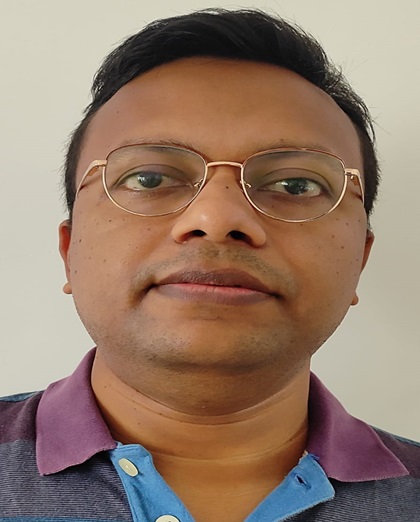Abhik Giri (Pilani, ՛09) graduated from BITS with a degree in Mathematics. He is an Operations Research professional with 13+ years of industry experience in Mathematical Optimization and Operations Research. Abhik works in SanDisk, Bangalore, as a Principal Operations Research Scientist, and has previously worked at Intel, Bayer, and FICO. He has also worked directly with client stakeholders at the CXO level.

Briefly describe your journey from BITS Pilani to your current role as a Principal Operations Research Scientist at SanDisk
I got placed at a small company in Bangalore through campus placement, which I joined in July 2009. In March 2010, I joined DecisionCraft Analytics, where I worked on a revenue optimization problem for India’s No. 1 TV channel and a product mix optimization problem for a Gujarat-based fertilizer company.
In December 2011, I moved to TCS and subsequently to Genpact in July 2013.
I joined Intel in November 2016, where I worked on supply chain optimization problems.
In May 2018, I joined FICO, where I solved optimization problems in logistics, supply chain, and manufacturing.
In March 2021, I joined Bayer to work on simulation problems in manufacturing.
In January 2022, I joined Western Digital, where I led a team of optimization and simulation specialists.
Could you share some highlights from your 13+ years of industry experience in mathematical optimization and Operations Research? Any particularly challenging or rewarding projects you've worked on or any memorable or defining moments in your career that have had a lasting impact on your approach to problem-solving and decision-making in the field of Operations Research?
At DecisionCraft, we built a revenue optimization model, which I had to explain to ~200 users. As we were a very small company, I was entirely managing this massive training exercise, which also included interacting directly with people at the CXO level. There was tremendous resistance from users initially. It took enormous time and effort to win their confidence.
At Genpact, I had to shift gears from OR to ML due to changing business priorities. Within <1 month, I picked up SAS and was able to build basic ML models. Over the next 2+ years, I worked on several complex ML projects.
You've worked with several prominent companies such as Intel, Bayer, and FICO. How did these experiences contribute to your professional growth and expertise in Operations Research? What differences do you see across these organizations, and how do you adapt to these differences?
At DecisionCraft, I was based in the client’s office 50% of the time and interacted with the users daily. This helped me understand their pain areas and made me start thinking about their problems from a business perspective rather than a mathematical one.
At Genpact, I became proficient in the art of making presentations and storytelling, i.e. presenting the output to the client in the most effective manner.
You've been actively engaged with academia through collaborations and guest lectures. What drives you to stay connected with educational institutions?
Academic collaborations are useful for all the players in the entire ecosystem - employees, organizations, universities, students/faculty. The key motivation is to make students aware that OR is not just a theoretical course in textbooks. It has immense practical applications as well. In India, very few students are inclined to pursue a career in science, as the general perception is that a career in science is not too promising. I think professionals pursuing a career in science should try to break this misconception among students so that more young minds are encouraged to pursue a career in science.
How do you see the field of Operations Research evolving in the coming years, especially in the context of technological advancements and changing business landscapes?
Advancement of optimization algorithms, increase in computing power, and improvement of commercial solvers would make it much easier to solve large problems. Demand for OR professionals is growing at a massive pace. OR is a field where the work that you do would create a direct impact on the organization and would also benefit society and the environment at large. There are numerous applications of OR which achieve environmental sustainability goals - reduce carbon footprint, make the world greener, reduce world hunger, and save human lives. In short, it makes the world a better place to live in!
You Might Also Like
- BITS to Baker Hughes: Shad Hussain’s Journey Through Turbulent Times
- Be Cool: Navigating Life, Literature, and Mental Health with Shashi Warrier
- Coaching Across Cultures: Brajesh Bajpai’s Journey of Learning, Leading, and Adapting
- From Engineer to AI Leader: An Interview with Akhil Singhal on Startups, Strategy, and the Future of Gen A
- From Circuits to Capital Markets: Deepak Joshi’s Global Finance Journey














